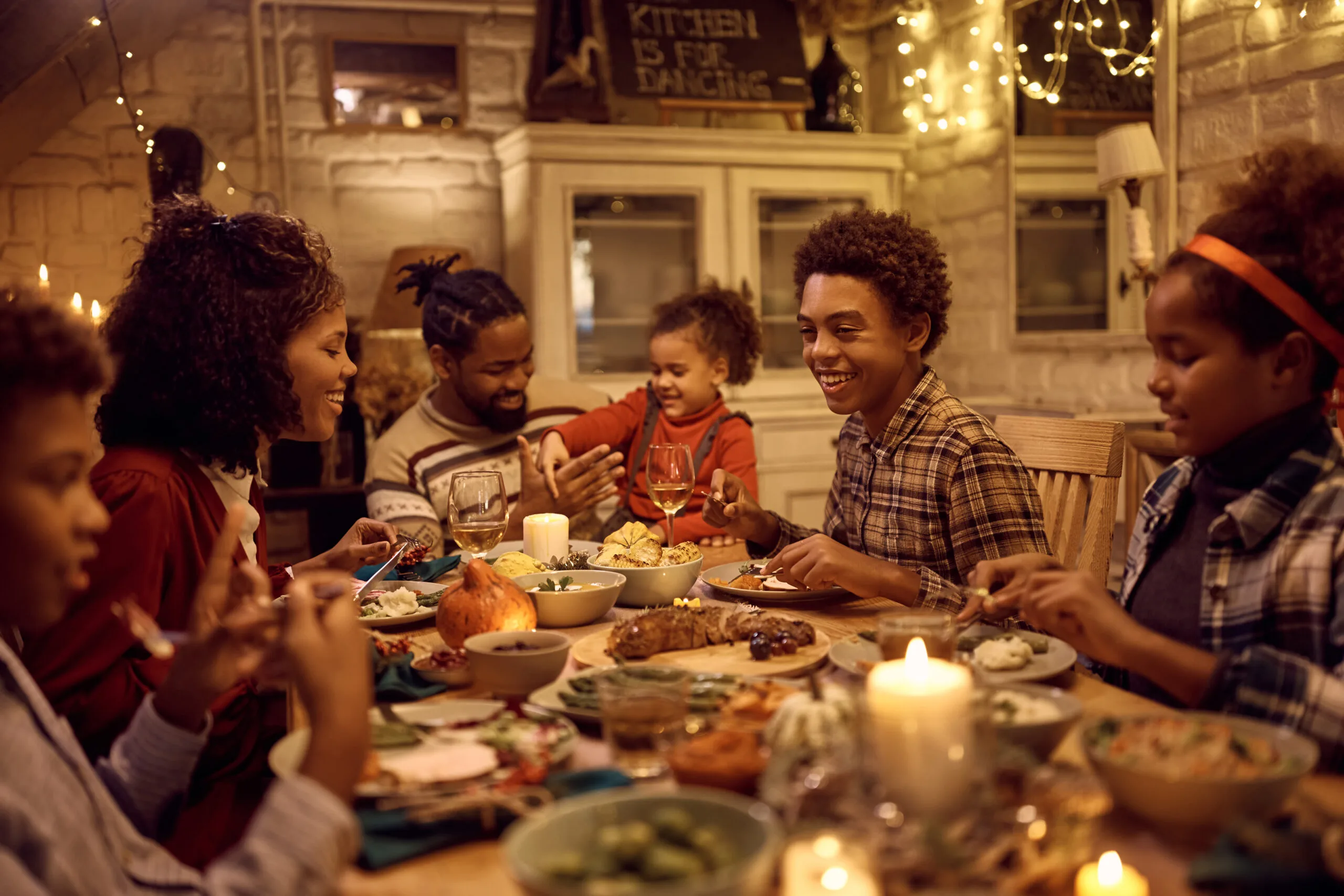
Thanksgiving is one of those holidays that revolves around food ( gratitude too).
While others look forward to the preparation and enjoyment of the various dishes and desserts that accompany this holiday, it can be stressful for those struggling with an eating disorder.
Thanksgiving especially is known for over-indulging when it comes to dinner, drinks and dessert. Socially, bingeing is more acceptable during the holidays (though it’s still unhealthy and potentially dangerous), which can be triggering for someone trying to reframe their mindset around disordered eating behaviors.
In this article, we’re going to take a closer look at how someone struggling with an eating disorder can navigate Thanksgiving. Having a plan, even a simple one, in place for the holidays can not only keep you on track with your recovery, but enable you to enjoy the season too.
Holidays and eating disorders: an overview
The relationship between holidays and food is universally understood. Families of all sizes, cultures, religions and traditions gather together during the holidays to eat, drink and be merry.
As joyful and unitive as this time of year can be, it can be particularly challenging or stressful for someone struggling with an eating disorder. As stated above, Thanksgiving especially so as it is a holiday that traditionally revolves around feasting and can be difficult to approach.
For those who are further along in recovery from their eating disorder, they may feel better prepared to approach the holiday season due to the personal and professional support they have. They likely have also been coached on how to create a “plan” for how to navigate the specific festivities and events they’re planning on attending this year.
If you’re in the newer stages of recovery or have not yet begun recovery, you might feel unprepared or anxious for how you’re going to approach Thanksgiving. We’re here to help.
How to approach Thanksgiving
When it comes to navigating Thanksgiving with an eating disorder it can feel a little bit overwhelming at first, but we’re here to walk you through how to do it:
1. Create a “party plan”
For every event you’re planning on attending this Thanksgiving, whether it’s a single big dinner or a variety of social activities, having a plan can greatly help you navigate the events.
The key is to create a plan that’s going to work for you. You can ask the hosts what they’ll be serving and make notes of how you can work with that. You can write out a short list of affirmations to read over if you start to feel anxious. You can also write out some actionable steps to take in potential situations that might arise.
If you’re ready to reach out for help, this could be a project your therapist helps you better understand and work through. If not, you can go ahead and start it by yourself!
2. Practice holding boundaries
Thanksgiving is known for having an abundance of food, and a variety of wild card loved ones.
Family members who are unaware of your eating disorder (or are unsure of how it “works”) might good-naturedly try and peer pressure you into trying every single dish. Or, the temptation of simply having so many different dishes and desserts might subconsciously convince you that you need to try every single dish.
Becoming comfortable saying no and holding your boundaries is a strong life skill in general, but will be especially beneficial in your recovery. Choose what you want to eat, and leave the rest.
3. Lean on your support system
If you haven’t yet started recovery, this could be your loved ones — family members, friends. People who love and support you, who you know you can trust, people who truly want to be there and help you in whatever way they can. They might not understand, but they’re there.
Remember that you aren’t alone, but also that your loved ones are not mental health and behavioral specialists. If you find you start to develop a therapy-like relationship with a loved one, it’s time to reach out and get the help you’ve already begun to subconsciously seek.
4. Reach out for professional help
If you or someone you love is struggling with an eating disorder and you aren’t sure where to begin with healing your relationship with food, send our team a message today.
Here at Seeds of Hope, your recovery is our top priority. Whether or not you believe in this moment that it’s possible for you to have a balanced, joyful, healthy relationship with food, we do. We’re going to hold onto that hope for you until you know you can have that reality too.
Send us a message or give us a call at 610-644-6464 to speak with a member of our team and learn more about how you can take the first steps towards recovery today.


